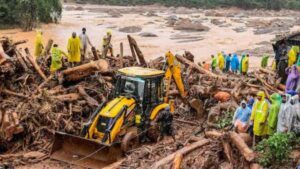On July 31, the , stating, “China extends heartfelt sympathies to the bereaved families and the injured, and wishes those who are injured a speedy recovery.”
Indian Foreign Minister Jaiswal acknowledged China’s message of support, coming shortly after External Affairs Minister S. Jaishankar had noted that India-China relations were “not doing very well” earlier in the week.
India and China have recently concluded diplomatic talks on border issues, described as “in-depth, constructive, and forward-looking.” Both nations have committed to enhanced military and diplomatic communication to maintain peace along their shared borders.
In the wake of the devastating Wayanad landslides, which have claimed 308 lives so far, messages of solidarity have poured in from around the world. U.S. President Joe Biden also issued a statement expressing condolences and commending the efforts of those involved in rescue and relief operations.
On Tuesday, heavy rains of up to 572 mm in 24 hours triggered multiple landslides in Wayanad, Kerala, destroying homes, roads, and public infrastructure. Rescue missions by the army, NDRF, and SDRF have been challenged by ongoing rain, swollen rivers, and damaged infrastructure.
State government data shows that about 900 people have died in Kerala over the past seven years due to extreme weather and landslides. Contributing factors include environmental neglect, rising sea temperatures, and loss of forest cover, which have increased the region’s vulnerability to such disasters.














